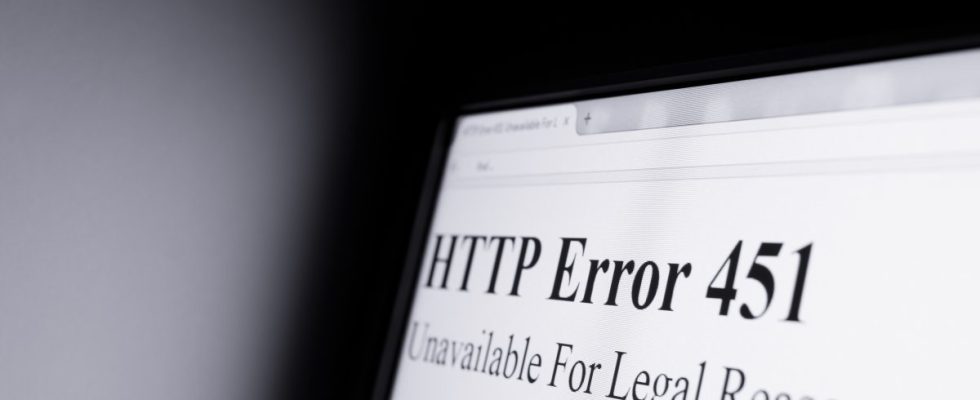France is on the verge of mandating a “dystopian feature” for browsers. That’s what Mozilla thinks, and in a blog entry it criticizes legislative plans that stipulate that browsers should directly block government-specified websites. This would undermine norms that have been established for decades and give authoritarian governments a tool with which to cement Internet censorship. Although the plans were based on good intentions, the implementation would be “disastrous” for the free Internet and disproportionate to the desired goal.
Advertisement
Protection against “digital insecurity”
The project criticized is part of an “aggressive package of laws” with which the French government wants to protect the population from “digital insecurity”, as Le Monde already quoted in mid-May. This includes social media bans after certain convictions (for hate speech and harassment), easier blocking of pornographic content that is accessible without age verification, and better protection against fraudulent websites. It is therefore planned that various authorities in France can compile fraudulent websites on a list. Browsers should then automatically block them. The French government has spoken of constructive talks with the providers in this regard.
At least the US organization Mozilla – responsible for the Firefox browser – was probably not convinced. She’s going on the offensive now. The French law would set a “worrisome precedent and create technical capabilities that regimes will use for far more nefarious purposes”. says Udbhav Tiwari from Mozilla. Although the aim of combating fraud is a lofty one, France would continue to overshoot it with this approach. This would create the technical prerequisites for governments around the world to block content that they do not like. The resistance against it would then be much more difficult.
Instead of requiring browser-based blocking, lawmakers should focus on strengthening existing mechanisms like Smart Screen and Safe Browsing, writes Mozilla. With the latter, browsers warn against visiting potentially harmful sites. For example, it could be regulated by law how quickly URLs reported by authorities have to end up in the underlying lists. At the same time, it should be noted that it is only about the fight against phishing and fraud. Independent experts should be able to check the entries. In this way, not only users in France but worldwide could be protected. This way would also be better than reinventing the wheel “with a ticking time bomb”.
(mho)

